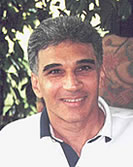Misinformation is flying everywhere in tennis. If you find that you are confused, over-thinking and changing your game, you may have fallen victim to some false beliefs. As a coach, parent or player, you can save many hours of frustration simply by recognizing what's wrong and where the wrong is coming from.
To help you, I have identified three significant sources of misinformation. All three are often based on a player's need to bolster his fragile self-confidence by getting a quick fix or a feel-good solution without having to accept his negatives, mistakes and failures. This is why many players have trouble forgetting and moving on from their mistakes in match play. They have not yet learned to stay confident during their losses. This should be a priority!
1. PSEUDO-TECHNIQUE
This is a problem I have gone over many times. I constantly hear players tormenting themselves because they did not do this or that technique in match play. As if it will magically solve their match problems! I'm not talking about an occasional, objective tip to help you along. What I'm talking about is the overdone, all-consuming, subjective thought process which concludes that techniques will save the day. I never hear players say, "I need more repetition training to eliminate these problems!" That, at least, would be closer to the truth.
In match play, what you have is what you must work with! Accept that fact, and your burden shifts from the unbearable weight of technique to the inner strength of mental attitude. In the face of adversity, a relaxed mental attitude carries you with ease. This is the substance of which Champions are made. It's called mental toughness.
2. PSEUDO-SUCCESS
Another subtle origin of misinformation is your peers. In tennis there is a generally accepted theory: If players win they have done something right, and if players lose they have done something wrong. If a fellow player looks better or has won a few matches, most players assume that what he (or she) does is correct. If he then starts giving advice and claiming he knows the best way to do something, everyone thinks, "He's winning, so that must be right!"
From experience, I can assure you that the advice given is wrong seventy percent of the time. That kind of advice is usually just a manifestation of that player's band-aid solutions which will only carry him as far as that particular level of play.
I am not saying to never listen to advice. Just do not automatically think it is right. If I were you, I would talk it over with a knowledgeable pro and get his (or her) opinion. In the long run, that could save you a lot of grief and stop you from developing the wrong concepts. You do not want to develop concepts that may offer you limited success at your present level but will completely fall apart on the next higher level.
3. PSEUDO-FAILURE
This misinformation I have seen often at junior tournaments, but it also happens on any level. The junior comes off the court after losing and a host of people tell the parent what went wrong. Meanwhile, the coach has a forty-five minute talk with the junior to explain what went wrong. I often think to myself, "Who has the problem with losing, the junior or the coach and parents?" If the whole losing event was not made into such an ordeal, in time the child would forget it and move on to the next tournament. Instead, the message sent to the child is that losing is bad and here are four hundred and eighty-five things you have done wrong. Do these right and you will win.
How about the novel concept of "You lost. Welcome to competition." Give them a word of encouragement and move forward, onto more training and a new tournament.
In closing, I realize that most players believe the concept that to improve they must correct their failures and mistakes. That is why the misinformation I have just covered is appealing to so many people. But there is no greater failure and no greater mistake than to not develop the correct mindset about negatives, mistakes and failures. In true Tennis Warrior fashion, all the false tennis concepts are cast aside as you forge ahead in the reality of mental toughness.


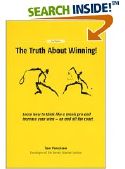
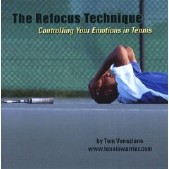
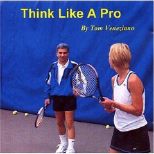
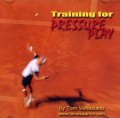



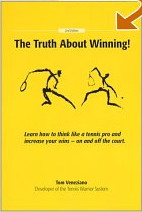
 You will join 13,000 other subscribers in receiving news of updates to the Tennis Server along with monthly tennis tips from tennis pro Tom Veneziano.
You will join 13,000 other subscribers in receiving news of updates to the Tennis Server along with monthly tennis tips from tennis pro Tom Veneziano. 